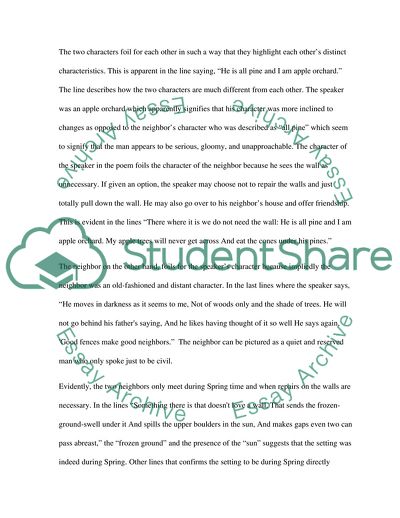Cite this document
(The Mending Wall by Robert Frost Essay Example | Topics and Well Written Essays - 2250 words, n.d.)
The Mending Wall by Robert Frost Essay Example | Topics and Well Written Essays - 2250 words. https://studentshare.org/literature/1722300-the-mending-wall-by-robert-frost
The Mending Wall by Robert Frost Essay Example | Topics and Well Written Essays - 2250 words. https://studentshare.org/literature/1722300-the-mending-wall-by-robert-frost
(The Mending Wall by Robert Frost Essay Example | Topics and Well Written Essays - 2250 Words)
The Mending Wall by Robert Frost Essay Example | Topics and Well Written Essays - 2250 Words. https://studentshare.org/literature/1722300-the-mending-wall-by-robert-frost.
The Mending Wall by Robert Frost Essay Example | Topics and Well Written Essays - 2250 Words. https://studentshare.org/literature/1722300-the-mending-wall-by-robert-frost.
“The Mending Wall by Robert Frost Essay Example | Topics and Well Written Essays - 2250 Words”. https://studentshare.org/literature/1722300-the-mending-wall-by-robert-frost.


